Dear Friends,
I struggle to sum up this past year with all its uncertainty, limitations and consequences thereof. This is especially so as we will continue into 2021 with many of the same challenges and threats - to nature, to our planet, and to our everyday lives. I have been asked multiple times over the past nine months how Covid-19 has affected conservation and my answer has been the same - conservation was in crisis before this pandemic, has remained so throughout it, and will continue to be once we are on the other side of it. But, there is an upside to all the craziness. Covid-19 has brought our connectedness and dependability on nature into painfully clear focus. It has elevated the existing scientific proof of the link between the rise of infectious and largely zoonotic diseases with our destruction of habitats and our consumption of wildlife. And what this year has demonstrated is that funding and actions needed to protect nature and prevent pandemics, are far less costly than living through future ones. I am cautiously optimistic that protecting nature will now take on new meaning to decision makers, the voting public, and for the people who are living on the frontlines who during this economic collapse, are surviving off the very nature we are protecting. And, what I am certain of is that our role at African Parks, our mission and what all of you are making happen, is more important than ever and requires scaling.
Our Growth
Despite this year’s hardships, we continued to grow our conservation footprint by bringing two new protected areas under our management: Rwanda’s Nyungwe National Park, which is one of the oldest Afromontane rainforests in Africa that provides 70% of Rwanda’s water and contains 25% of Africa’s primate species; and Benin’s W-National Park, an anchor of one of the largest remaining, intact wild ecosystems in West Africa and forms part of a UNESCO World Heritage Site. We also strengthened and expanded two existing mandates: Odzala-Kokoua National Park in the Congo Basin - the world’s second largest tropical rainforest - whereby we re-affirmed our 25-year mandate with the Government and which now also includes the Lossi gorilla sanctuary; and for Chinko in the Central African Republic, where we signed a 25-year agreement with the Government to expand the area under protection to 5.5 million hectares. As we saw numerous countries pledge to put climate and biodiversity at the heart of post-Covid recovery plans, it is actions such as these taken by our Government partners from Rwanda, Benin, Congo and the Central African Republic, that will achieve meaningful results in protecting natural resources not just for their own country, but for a continent and for the planet. Thanks to them, and all our Government partners, we now have 19 parks under management in 11 countries, ensuring that 14.2 million hectares of some of the world’s most critical ecosystems are being effectively conserved.
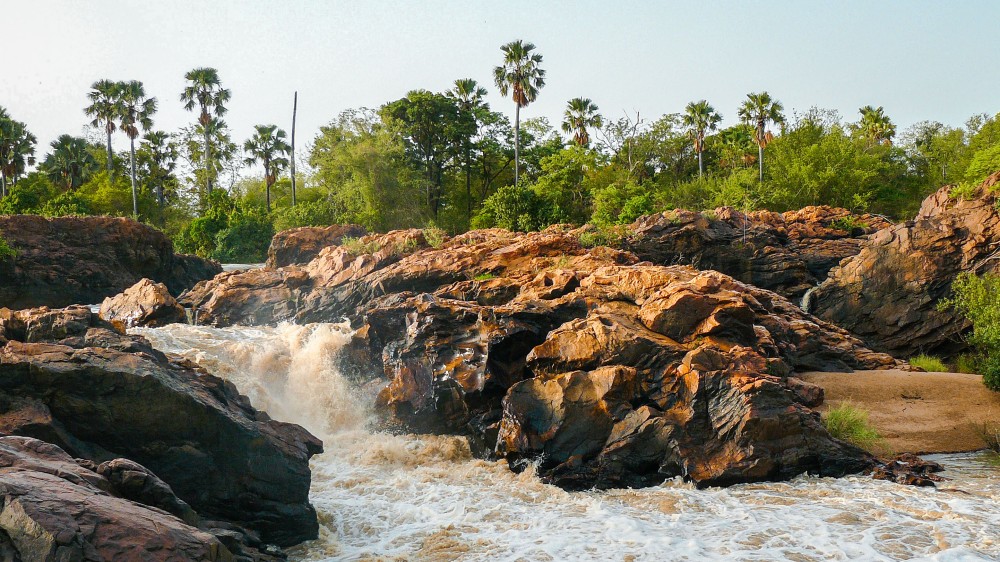 © Julien Chevillot
© Julien ChevillotOur Community
I am so proud of our teams across Africa, who kept every park fully operational this entire year. While tourism came to a sudden halt in early March and with it an immediate loss of 10% of our annual budget, we made quick financial decisions to adjust accordingly and thus were able to continue our day-to-day operations. Not one ranger missed one patrol, and not one staff member lost their job due to Covid. In keeping with the extremely important role we play for some of Africa’s most vulnerable communities, our teams mobilised and distributed over 65,000 masks to staff and community members. More than 5,000 litres of soap, 285 litres of bleach, 223 bottles of hand sanitizer, and 630 handwashing stations were assembled and distributed to health centres, clinics, schools, and other community centres. Awareness and sensitisation campaigns to help prevent transmission and contain the spread reached at least 135,800 people in those local communities around the parks under our management.
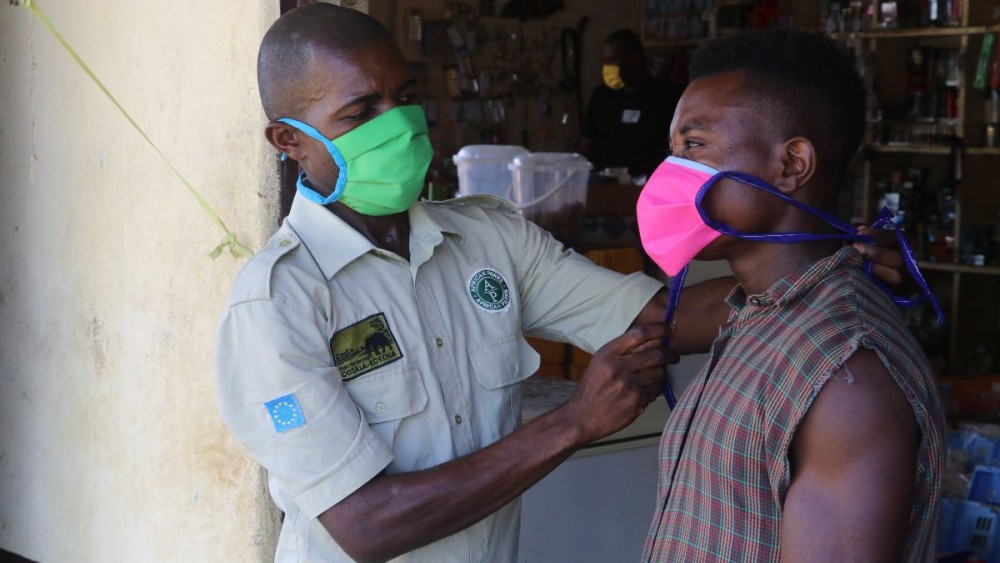 © Raphael de Laage
© Raphael de LaageOur regular community interventions continued throughout the year with the building and revamping of schools, providing educational scholarships to hundreds of children in need, guaranteeing free access to school groups to visit the parks and receive environmental education, and conducting family planning workshops. Livelihood projects proved to be essential with supporting fisheries and bee-keeping co-operatives, “pass-it-forward” goat programs, helping communities with sustainable farming practices as well as providing access to parks to harvest natural resources. Four of the 19 parks we manage have at least 90,000 people legally living within them, and every park has communities numbering in the thousands to living around them. Providing real, tangible benefits to these communities is critical for the long-term future of each and every one of these landscapes.
In October, 1,000 of our rangers took part in the Wildlife Ranger Challenge to raise funds to outfit another 1,000 rangers with gear – boots, a pack, a shirt and a pair of field trousers – simple but critical gear needed to go out on patrol. Together, our rangers ran 21,000 km, nearly the full perimeter of Africa, and they did so in solidarity with their non-African Parks colleagues to raise $250,000. This video exemplifies the spirit, strength and optimism they all embody, and it was inspiring to participate in and to witness.
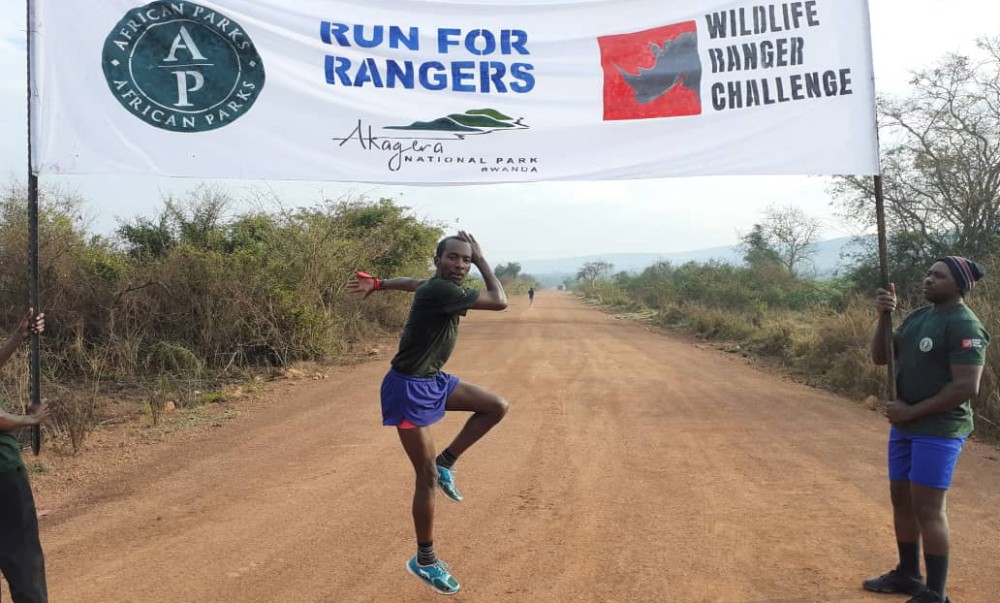 © African Parks
© African ParksWildlife
We managed to keep poaching at an all-time low across the parks and see key wildlife populations continue to increase. Majete maintained its 17-year track record of not having lost one rhino or one elephant to poachers; rhino populations are on the rise in Akagera, Majete and Liwonde with new rhino calves, which we celebrated on World Rhino Day with the release of this new film about the largest airlift of black rhinos. Witnessing the loss of a species is heart-breaking, but there is nothing quite as hopeful as seeing its return. While rhinos are one of the most heavily threatened species on the planet, both the Malawian and Rwandan Governments have taken bold steps in restoring rhinos and creating favourable conditions for their long-term survival, and we applaud their vision and actions taken to make this a reality.
Lions are thriving in Zakouma, Akagera, Pendjari, W, Majete and Liwonde and camera trap data confirmed their presence in an area in Chinko where they have not been seen since 2016. In Garamba, elephant poaching has been reduced by 95% since 2016, and in further hopeful signs of recovery, 39 elephants under the age of one were counted, along with eight juvenile Kordofan giraffes, showing a population increase of 13% over last year. Results from Odzala’s 2020 wildlife survey show a continued globally significant stronghold of approximately 7,270 forest elephants, 7,575 western lowland gorillas and 827 chimpanzees within the park. Ostriches were reintroduced to Ennedi and reported on by The Times, and two more cheetahs were translocated to Majete to bolster the existing population.
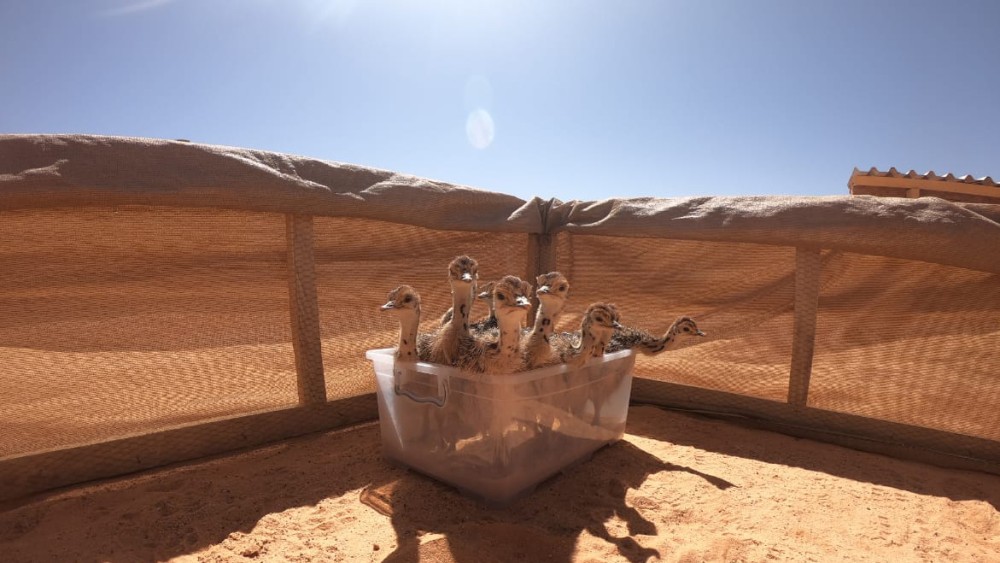 © Elsa Bussiere
© Elsa BussiereOur teams in Pendjari and W are just completing a large elephant and antelope collaring exercise (totalling 30 individuals), the first for W National Park, which will give us clearer insight into the transboundary significance of that entire complex. And as you may have just seen, a founder population of cheetahs just arrived in Bangweulu in Zambia in an exciting move to help expand the range of this vulnerable species together with the Endangered Wildlife Trust, and to help with tourism. These highlights are single-species focused, but what is more important is securing the entire systems together with our Government partners to create favourable conditions for all wildlife to thrive and play their part in ecologically healthy landscapes.
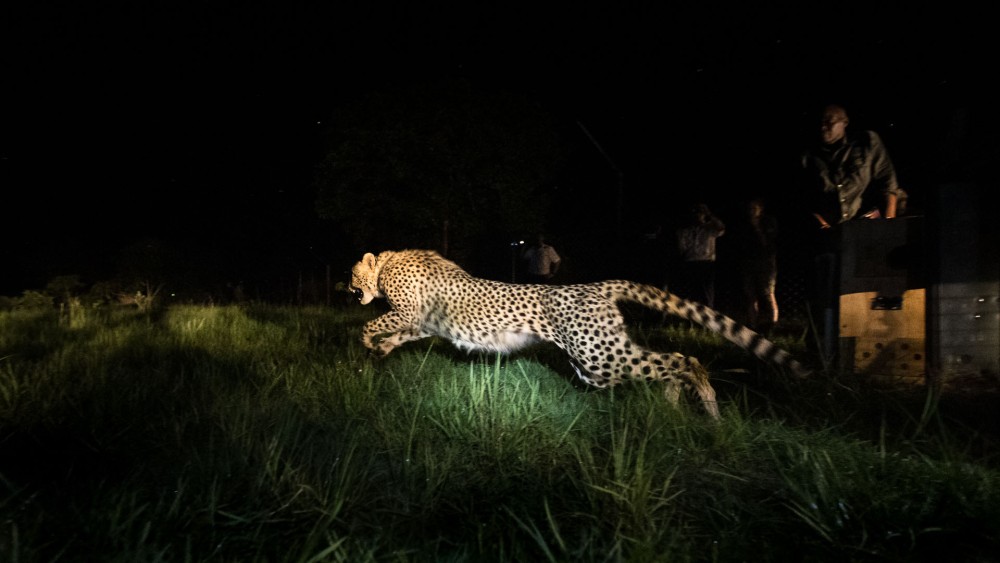 © Andrew Beck
© Andrew BeckLooking Ahead
Given this year was our 20th Anniversary, and we are closing in on our goal of managing 20 parks by 2020, it is only fitting to cast our vision for our next ten years. Our immediate target is to manage 30 parks by 2030, across 11 biomes, and measuring 30 million hectares thereby significantly contributing to the higher-level vision of ensuring that 30% of Africa’s unique landscapes and their wildlife are secured in perpetuity. We also aim to have an incubator program involving support to select partners who in turn will manage an additional 10 protected areas spanning a further 5 million hectares. We spent a good part of the Covid induced lock-down analysing the entire protected area landscape of Africa. Surprisingly, of the 7,000 registered protected areas in Africa, only 1,000 are larger than 50,000 hectares. Of those, we identified just 161 as being the most globally significant in terms of viability, biodiversity, and ecosystem services. Of these, just 69 are adequately managed and protected to a level where they have a reasonable chance of surviving into the future. The remaining 92 are experiencing incredible threats and require a management solution, urgently. We are both well positioned to scale our impact and have a responsibility to do so.
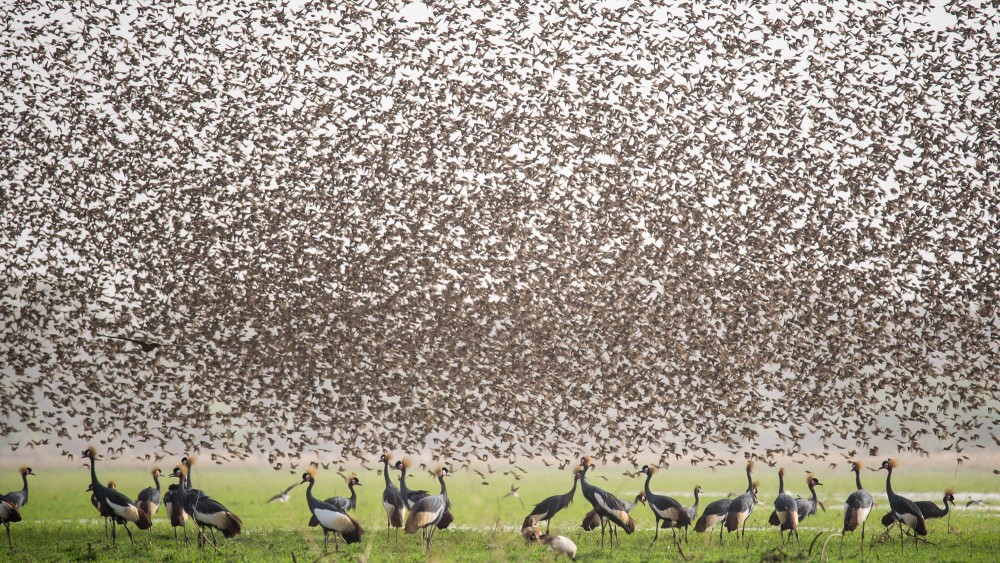 © Kyle de Nobrega
© Kyle de NobregaIn Memoriam
The pandemic struck us at our core with the tragic loss due to Covid of three extraordinary individuals and members of the African Parks family. Jonathan Chisaka, our Bangweulu Wetlands Park Manager, passed away on 18 July. Jonathan left a distinguished conservation legacy in Bangweulu and was a deeply admired leader among the community. Kunda Mwape, our Financial Accountant and HR Manager in Liuwa Plain National Park, passed away on 21 July. Kunda joined the Liuwa team in 2016 and was highly valued and well-loved by all who knew him. Francis Mbilizi, Chairman of African Parks Malawi Board, passed away on 1 August. Francis served as a long-standing Board Member of African Parks in Malawi, first on the Majete Board from 2009 and then as Chairman of African Parks Malawi since 2015, until his untimely passing. An academic and an extremely accomplished individual in both government and the private sector, he was instrumental in helping guide African Parks in Malawi for over a decade. These untimely losses affected us all, and we pay our deepest respects to their families.
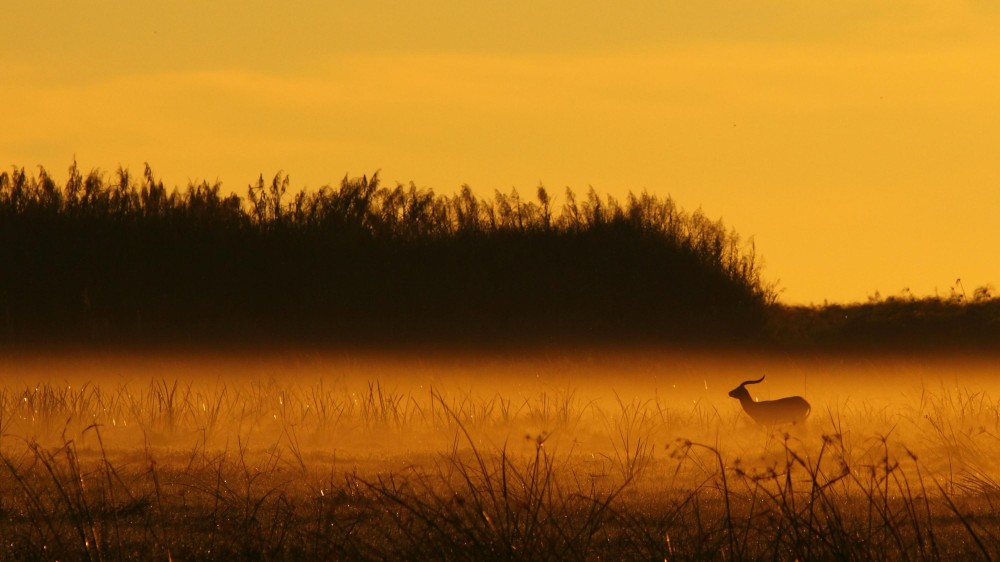 © Stephen Cunliffe
© Stephen CunliffeWith Gratitude
Despite this pandemic and the challenges it brought, we made some serious strides, and had some significant gains throughout this year. I speak for everyone at African Parks when I say that it is an honour to be working with every single Government partner who has entrusted their national parks into our safe keeping. We recognise repeatedly that it is because of them first and foremost that our work is possible. This was also a year which might have resulted in a decrease or a loss in funding; but thanks to the resilience of our funding partners not only were we able to sustain all the parks in the portfolio, but we were able to grow the footprint. It is because of our committed funders that we are able to continue to enact proven solutions to conserve Africa’s biodiversity. Thank you for standing with us, for being our partners, and for your unwavering support now, and into this next chapter where we are charting a course to protect nature upon which our collective future depends.
Here’s to wishing you a safe holiday season and sharing my most sincere good wishes for the New Year.
Peter Fearnhead
CEO
African Parks